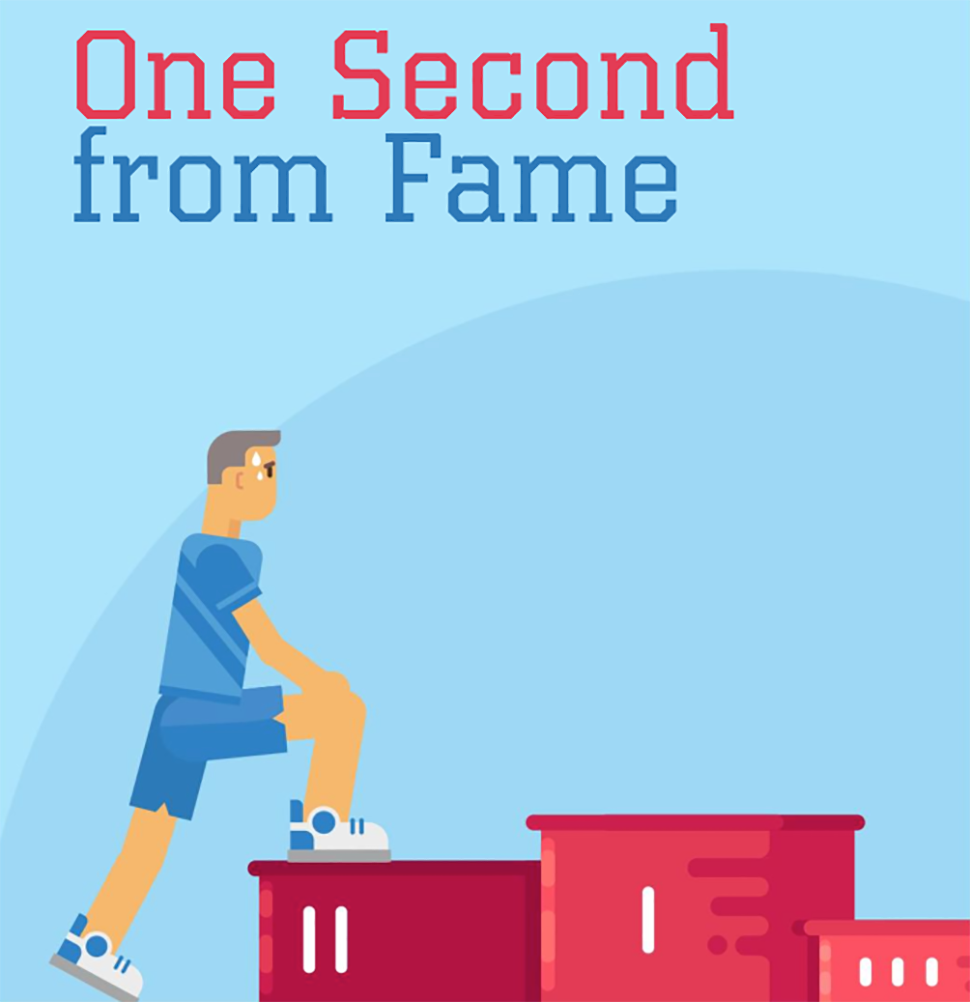
Second place is the first loser.
The words, all bearing some sort of neon color on them, stood out on a dark grey t-shirt hanging on the rack at the front of a sporting goods store. I read it and laughed and thought how true it was.
I was in my early college days when I first saw the shirt. I was pumped full of bravado and confidence in my abilities; at least my aptitude at running long distances faster than most everyone else. That shirt embodied my mentality and my training. Each and every day, logging lots of miles.
I stretched, lifted weights, ran plyometric drills, tried to eat healthy and did all kinds of things aiming to win. Not to place second, third, fourth or further down the list but to be the winner. You know the only person in the event, who according to the t-shirt isn’t a loser.
Let me preface the remainder of this column with this notion – I don’t like participation trophies, and I think awards should be earned and not handed out.
I cringe when I run a four-mile race and they hand me a finishers’ medal. I know there are some people at those races who have had to work hard to be able to finish the distance, and I don’t want to take anything away from their efforts.
However, it’s four miles. My Garmin tells me on a bad day when I don’t run that I walk further than that. Most able-bodied people can walk four miles in under an hour without too much effort.
I don’t think everyone should get a medal for finishing a short race. Finish a half marathon at 13.1 miles or a marathon at 26.2, and that’s a different story. Complete a half or full triathlon and yet you’ve earned said medal.
That being said, somewhere along the way I moved away from the t-shirts’ mantra. Maybe because I found out I was the loser far more often than I was the winner. But the slogan failed to take into account something that I’ve learned is far more valuable than just winning alone.
Competing.
It’s easy to point out that because of my age, winning doesn’t come as often or hardly ever, and it’s true. Look, I’ve been running off and on for more than 30 years. If my sole goal is winning, I’m an abject failure. In fact, if that were my only goal then one of the many awkward photos taken of me running a road race would appear next to the word failure in the dictionary.
Somewhere across these three-plus decades, I’ve learned something far more valuable. Winning is fun, but that’s not what I’m talking about. Everyone loves winning. What I enjoy more is competing. I train with the idea that I want to be competitive.
When I toe the starting line and look over and see a runner 10 to 15 years younger than me with long legs and an “Eye of the Tiger” look, I know I’m probably not winning. But that doesn’t mean I can’t get the most out of myself and enjoy the race.
Players on my travel soccer team tend to ask me before games how we fared previously against the team we’re about to play. If we haven’t played them, some even ask if I think we can win. My stock answer is easy. I tell them I think we can compete.
That’s what I want to see. I would love for the squad to win every game, but what I want even more is to see them take the field, play their hardest and compete at a high level from the moment the first whistle blows until the final trio of whistle blows that ends the contest.
Because sometimes when we play or run or compete we square off against competitors, who aren’t at our level and who we can beat without too much effort. It’s always fun to win, but that’s not what I’m aiming for. I want to be pushed. I want my players to be pushed.
Because when you are challenged, you have the ability to rise to the occasion. You might not win, but if you give it everything you’ve got it doesn’t matter. During the past 30-plus years, I’ve won races, and I’ve coached teams that have won games.
But I can say that I’ve learned far more from the many, many, many races I didn’t win and the games my soccer team lost, than from the victories.
About a year ago, I told my wife I’d probably never win a road race again. I still place in my age group, but I felt like the overall title might be out of my reach. She admonished me and told me not to give up. But I wasn’t giving up. I was just being honest.
I still train hard and aim to win. A couple of weeks later during a local event, I noticed a couple of solid runners not lining up in my race. They had scheduled some harder runs a day or two later and were skipping this event. There were good runners involved, but I also knew I had a chance.
And late in the race, when the opportunity presented itself, I took it. I had to go hard over a hill and the last mile and a half of the race. It wasn’t fun, and I hurt. But I competed. My goal when I surged late in the race was to win. However, if another runner had countered my efforts and beat me, I would have tipped my hat to him.
I would have finished second knowing I had competed as hard as I could.
I did cross the finish line first that day, and it felt good. But let’s be honest. I’m happy every time I cross that finish line when I’ve gone out and competed whether I finish first or 10th or 50th or worse. And I’m proud of my players every time they play their hardest whether they win or lose.
So if second place is the first loser, then I will proudly be a loser. But I also know I’ve competed to the best of my efforts.



